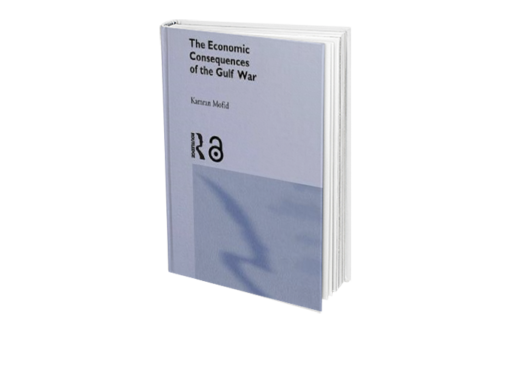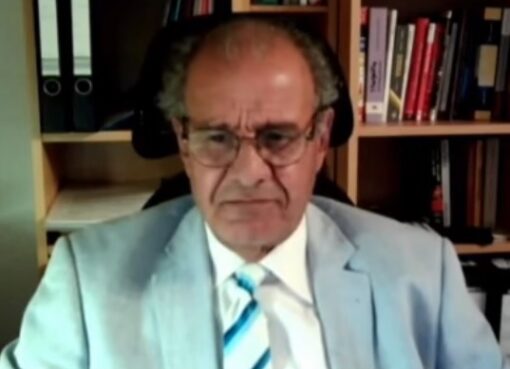To ensure that new protests, new sanctions, and new political leadership wind up helping rather than hindering Iraqi sovereignty, Washington must handle upcoming developments with great care.
In the coming weeks, Iraq’s parliament may appoint a replacement for Prime Minister Adil Abdulmahdi. This is a very positive development, since the country’s sundry Iranian-backed militias would like nothing better than to keep the discredited leader under their thumb as an open-ended caretaker premier following his November resignation. In contrast, a new leader with a new mandate could get the government moving again, pass a budget, bring the criminals responsible for killing protestors to justice, and assuage angry protestors by making visible preparations for early, free, and fair elections—thereby remedying the results of the widely disparaged 2018 vote.
Such is the political space that has opened up since the deaths of Iranian Qods Force commander Qasem Soleimani and Iraqi militia chief Abu Mahdi al-Muhandis earlier this month. For the United States, the challenge is how to support these changes without disrupting positive local dynamics.
One welcome sign emerged earlier this week, when Shia leader Muqtada al-Sadr and a range of other Iraqi politicians rallied to defend President Barham Salih after Iran-backed militias fiercely criticized him for meeting with President Trump in Davos on January 22. Previously, the militias had warned Salih not to meet with his U.S. counterpart.
The militias suffered another setback during a parliamentary vote on January 5, when all Kurdish members, most Sunni members, and even many Shia members boycotted a session intended to ratify a motion evicting U.S. troops from Iraq. As a result, the session was held without a quorum, invalidating the yes votes and showing that militia intimidation was not enough to force dissenting parliamentarians to sabotage their own national interests.
These startling developments stem from the ongoing disruption of the Qods Force control system in Iraq. Indeed, the January 3 assassination of Soleimani and Muhandis has created a fleeting opportunity for Iraqi nationalists to seize the political reins back from the militias and restore Iraqi sovereignty.
How can Washington support these trends without inadvertently undermining them? Several do’s and don’ts spring to mind:
Do postpone further sanctions for a few weeks. The first priority is to avoid interrupting the story. Today’s story in Iraq is a good read: from the protestors up to the president, nationalists are trying to reclaim the right to live in a sovereign, stable, and democratic state. To avoid distracting from this narrative, U.S. officials should hold the release of imminent Global Magnitsky sanctions packages for at least a couple more weeks. They should then signal that Washington is keeping a close eye on individual politicians who are set to be targeted in the new packages, and on some who are close to being sanctioned.
Do approve a new energy waiver. The U.S. government should issue a new sanctions waiver for Iraqi purchases of Iranian natural gas and electricity in early February, when the current 120-day waiver expires. Tehran has signaled that it will be reducing these gas supplies from more than 800 million cubic feet per day to just 200 million, citing supply shortfalls and an unusually cold winter in Iran. There is little for Washington to lose in renewing the waiver—the Iranian regime gets little value from these transfers due to U.S. limits on dollar payments, especially now that volumes are decreasing. Issuing the waiver would also prevent Tehran from blaming the United States for any electricity shortfalls in Iraq.
Do warn against further crackdowns. Major new protests are expected to unfold on January 24, with some potential for further militia violence against peaceful demonstrators. The United States and other international partners should urgently signal that they will be watching the protests closely and will hold Iraqi officials accountable for harming or intimidating civilians.
Don’t overreact to counter-protests. Washington should keep in mind that any major militia in Iraq can bring thousands of people to the streets for a day, and many of them will likely hold marches of their own alongside the peaceful protests scheduled for January 24. This does not mean that they or their usual array of anti-American slogans and symbols represent the majority of Iraq’s 39 million citizens, or even the country’s Shia majority. However many pro-Iranian militia supporters take to the streets, they are just a tiny proportion of all Iraqis.
Don’t issue further public threats. On the hot-button issues of sanctions and troop presence, it is time for U.S. messaging to go behind closed doors. Washington has made its views on these two matters clear, so making new threats or other comments in public would not be helpful. At the same time, U.S. officials should take advantage of their many existing channels and quietly communicate to militia leaders that harming Americans or American partners in any way will be met with the same decisive force used against Soleimani and Muhandis—making clear that this retaliation would target Iranian advisors in Iraq and Iraqi militia leaders in equal measure.
Do tell Iraqi allies that Washington has their backs. Having refreshed its deterrent posture, the United States should quickly and quietly engage Iraqi nationalists in a manner that makes them feel safe and supported, since they will no doubt continue facing the kinds of threats that President Salih endured ahead of meeting with President Trump. This means explicitly telling key officials such as parliamentary speaker Mohammed al-Halbousi that Washington stands behind them, is watching their efforts closely, and is willing to support and protect them as they try to restart the political process and save their country. Although partners like the UN, EU, and Gulf states can help reinforce these messages, there is no substitute for private messages delivered by top U.S. officials such as Secretary of State Mike Pompeo. Timely, senior-level engagement would leave no doubt that U.S. leaders are focused on the urgent, positive developments currently unfolding in Iraq.
Michael Knights is a senior fellow with The Washington Institute. Since 2003, he has conducted extensive on-the-ground research in Iraq alongside security forces and government ministries.
Source: Washington Institute for Middle Eastern Policy, January 23, 2020
https://www.washingtoninstitute.org/policy-analysis/view/u.s.-dos-and-donts-in-iraq
#








Comment here